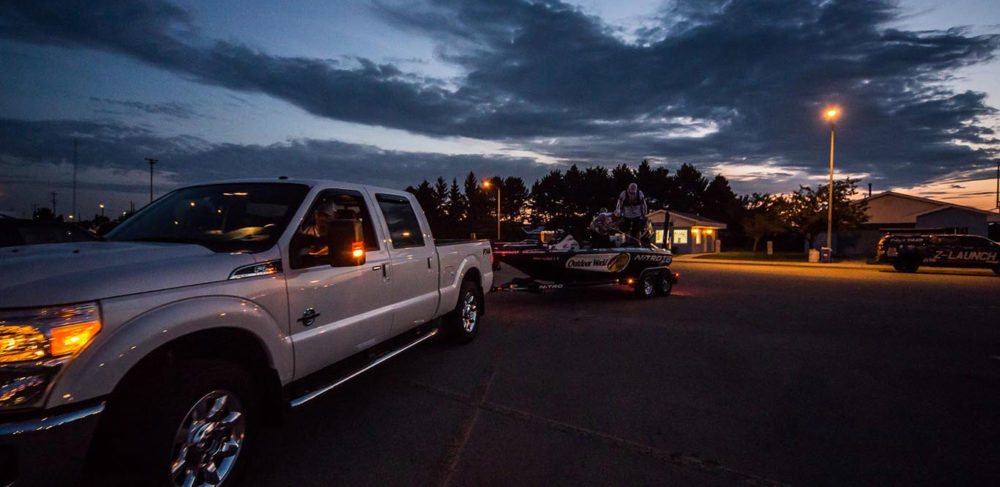PREVIEW: A ‘Long’ Shot
The final day of the MLF Challenge Select begins on Long Lake

And then there was one – just one last ticket to the Challenge Cup event up for grabs for the 2017 Select season.
Only one of the final six anglers in Survival Round 2 of the Challenge Select will advance to the Cup and their fate will be determined on Long Lake during the final day of Select fishing for the year.
As the Select caravan pulls into the Long Lake ramp, there are no more secrets. Most of the pros don’t even bother to look at their maps with anticipated excitement. They know exactly where they are and exactly what must be done.
“This is a little more of what I was expecting,” offered Ott Defoe, who qualified fourth off of Lake Huron. “This is one of the lakes they fished on before; I figured we might go somewhere a little more proven on the final day. I can’t remember exactly which lake this is, but I’m familiar with the vibe – it’s a smallmouth deal and it’s a pretty solid lake, so I’m ready to go.”
Todd Faircloth, who qualified off of Huron in second place, was very matter-of-fact with his assessment of Long Lake as well.
“Yeah, this is more in line with where I thought we would be fishing,” Faircloth said. “I’m familiar with it from the show. I’m trying to recollect which one this is. From what I remember, all these lakes were pretty similar. They were all really good lakes with mostly smallmouth. And I remember they mostly caught them shallow. But I think they fished here a little later in the year than now, which might make some difference in how they set up.”
Faircloth is right. The original Cup show visited Alpena at the end of August and now it was the end of July. A month may not sound like much, but Brandon Palaniuk makes an interesting observation on the timing.
“A month in a northern fish’s world is like two or three months in a southern fish’s world,” he said. “Fall and winter come fast up here, so a month from now will be a lot different. And that’s why I didn’t bother with watching the shows: it’s a different time than when they were here before.”
Marty Robinson agreed.
“Yeah, I watched the shows, but one thing I’ve learned on the Elite Series is that rarely do lakes fish the exact same year after year,” Robinson said. “Especially if you go to them at a different time. The Cup guys were here a couple of years ago – that’s a long time. So much can change on a waterway in that amount of time. It’s good to know some background, like what species lives here and what the predominant structure is. But specifics like exact lures that worked and exact locations of where they were caught will change.
“What’s more important to me is this weather,” Robinson added. “It’s one of the cooler mornings we’ve had this week – and the wind looks like it’s going to blow some today. Adapting to the current conditions is more critical than what happened here two years ago.”
Robinson’s fellow South Carolinan Casey Ashley had similar sentiments.
“I don’t want to lock my brain down on something that worked here two or three years ago,” Ashley said. “All I got from those shows that I care about is that they live here. That’s my number one question: how good of a fishery are we dealing with? That helps us gauge what we need to be catching. From what I saw these fish would chew on a shoestring when those Cup boys were here. So at least I know what we’re dealing with – you better come out of the gate in full stride.
“Now it’s probably not going to be as good this time around because I’m here,” Ashley said. “Because whenever I show up it seems like all the fish tend to get some kind of lockjaw.”
Scott Ashmore, who qualified fourth from Grand Lake on day one, found one benefit in knowing the background of the lakes.
“One thing is for sure, there are a lot of options on this lake,” he said. “It’s not like we’re all going to run out there and pile on the same two or three obvious places. There are a lot of obvious places to fish, so we should have plenty of space.”